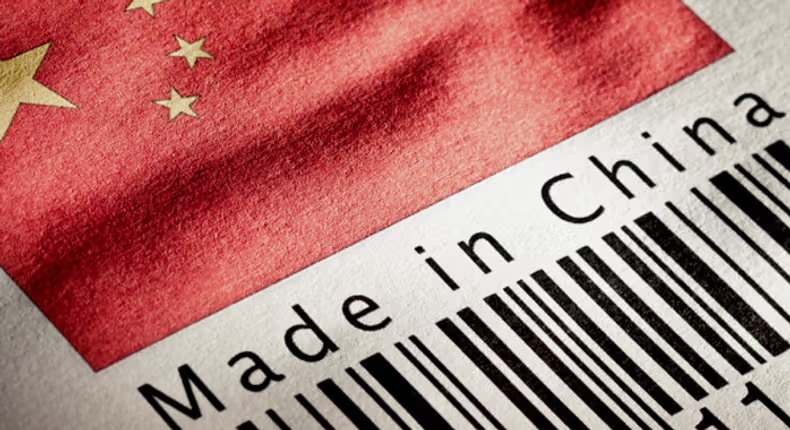
27
Jun
Excluded and Unseen:China’s Visa Policy and the Limits of Africa’s Strategic Value
China’s expanded visa-free transit policy marks a deliberate recalibration in Beijing’s global mobility strategy. Under the rules, travelers from 55 countries are permitted to transit through China visa-free for up to ten days, a notable upgrade from earlier 72 and 144-hour allowances. Billed as a convenience measure to facilitate and boost smoother business, tourism, and high-frequency travel in a post-COVID global economy, the policy is presented as a sign of China’s “win-win” cooperation.
Yet despite this seemingly inclusive approach, not a single African country is included. For a continent of 1.4 billion people, and for a collection of states that together form China’s largest trading partner in the Global South, the omission is not just puzzling, it is revealing. This exclusion is no mere administrative oversight; it underscores a persistent contradiction between China’s lofty rhetoric and the reality of an engagement that continues to treat Africa more as a resource frontier than as an equal partner.
All Schengen member states, the UK, Russia, and other European nations glide through Chinese airports visa-free; in Asia, Japan, South Korea, Singapore, Brunei, Qatar, the UAE, and Indonesia (added in June 2025) enjoy the privilege. From the Americas, the United States, Canada, Brazil, Mexico, Chile, and Argentina made the cut. Oceania boasts Australia and New Zealand; Gulf states, including Saudi Arabia, Bahrain, Kuwait, and Oman, benefit from a separate 30-day waiver. Yet across this diverse lineup, Africa is entirely sideline, despite many African governments having signed bilateral and multilateral agreements with China under the Forum on China-Africa Cooperation (FOCAC), the Belt and Road Initiative (BRI), and countless trade partnerships.
This exclusion speaks to the structural imbalance at the heart of Sino-African relations. China is, indisputably, Africa’s largest bilateral trading partner: trade reached $282 billion in 2023 (Xinhua Silk Road, 2024) and had already topped $134 billion by mid-2025 (Ecofin Agency, 2025). Infrastructure projects like roads, ports, railways, & power plants are built with Chinese loans and expertise. Politically, FOCAC remains Beijing’s cornerstone diplomatic platform with Chinese envoys routinely making Africa their first stop each year (The China-Global South Project, 2025).
While Beijing publicly frames its tightest visa rules as necessary for “managing immigration risks” and safeguarding national security, these justifications thinly veil deeper, racialized assumptions about African mobility. China’s immigration white papers routinely warn against “high-risk travelers prone to overstay,” yet nowhere is this language more punitive than in its treatment of Africans, despite no evidence of systematic overstay patterns unique to that continent. In truth, the policy signals that Africans are perceived first as potential security burdens rather than bona fide business people, tourists, or students (Migration Policy Institute, 2021). By contrast, citizens of wealthier economies, whose migration histories are rarely subjected to such scrutiny, enjoy unimpeded transit. This disparity underscores a persistent hierarchy: Africa supplies raw materials, but its people are presumed to be a liability (Carnegie Endowment for International Peace, 2024).
On paper, the relationship is built on “mutual benefit”, a refrain echoed at every summit and state visit. Beijing contrasts its condition-free approach to Western aid, but when it comes to Africans themselves, the door stays firmly closed. Visa-free access, it seems, is reserved for those who bring capital or geopolitical leverage, not for those seen as sources of raw material or low-end labor.
In a landmark follow-up to last September’s Beijing summit under FOCAC, China has now eliminated import tariffs on all goods from the 53 African countries with which it maintains diplomatic relations, excluding Eswatini, to enhance economic cooperation and balance trade relations. Announced at a high-level meeting in Changsha between senior Chinese officials, African foreign ministers, and African Union representatives, this duty-free scheme supersedes earlier, more limited zero-tariff measures. To ensure fair competition, China will bolster least-developed signatories, such as Tanzania and Mali, with targeted training, marketing support, and technical assistance (Sunday Independent, 2025).
In reality, mobility concessions without structural change only reinforce dependency. Zero tariffs ring hollow when Africa’s chief exports remain unprocessed commodities: minerals, timber, and oil. China doesn’t need African-made electronics or automobiles; it needs raw inputs, which it then processes and sells back to Africa at a markup. That’s not trade, that’s extraction. Genuine equality demands more than duty relief; it requires mobility rights, skills exchange programs, joint industrial ventures, and the capacity to export finished products.
China’s exclusion of African nations from its 10-day visa-free regime thus becomes a window into the hierarchy Beijing applies in its foreign relations. But this moment also presents an opportunity for Africa to reclaim agency. If the continent is to be taken seriously as an equal partner, its governments must insist on true reciprocity. Visa-reciprocity clauses should sit at the core of every bilateral agreement, elevating human access to the same status as investment incentives. Simultaneously, Africa must accelerate implementation of the African Union’s Free Movement Protocol and fully leverage the AfCFTA, ensuring that Africans can move freely across their own borders before seeking access to external hubs.
Equally vital is a shift in economic strategy. Policymakers should pivot from celebrating tariff waivers to building domestic value chains, prioritizing processing capacity, manufacturing, and the export of finished goods that actually matter in global markets. Trade preferences are only as valuable as the products they apply to; until Africa industrializes, duty relief will remain little more than optics.
Above all, African leaders must remember that no external power has a greater stake in the continent’s long-term development than Africa itself. Every geopolitical partner follows the same extractive playbook: secure resources, project influence, then move on.
In this diplomatic chess match, respect, however, will be measured not just by trade volumes or megaproject inaugurations, but in how citizens are treated at immigration counters. Africa must insist on nothing less than equality.
By Tsega’ab Amare,Researcher,Horn Review
Reference
Carnegie Endowment for International Peace. (2024). How is China’s economic transition affecting its relations with Africa?
Ecofin Agency. (2025, June 24). China-Africa trade hits $134.16bn, up 12.4% in first five months of 2025. http://www.ecofinagency.com/news/2406-47402-china-africa-trade-hits-134-16bn-up-12-4-in-first-five-months-of-2025
Migration Policy Institute. (2021). As migration and trade increase between China and Africa, traders at both ends often face precarity.
Sunday Independent. (2025, June 18). Zero tariffs, infinite trust: How China’s bold trade move redefines Africa’s future. https://sundayindependent.co.za/dispatch/2025-06-18-zero-tariffs-infinite-trust-how-chinas-bold-trade-move-redefines-africas-future/
The China-Global South Project. (2025, January 9). From 1991 to today: The significance of the Chinese foreign minister’s annual Africa tour. https://chinaglobalsouth.com/analysis/from-1991-to-today-the-significance-of-the-chinese-foreign-ministers-annual-africa-tour/
Xinhua Silk Road. (2024, September 5). China-Africa economic and trade cooperation shows strong vitality. https://en.imsilkroad.com/p/341955.html










